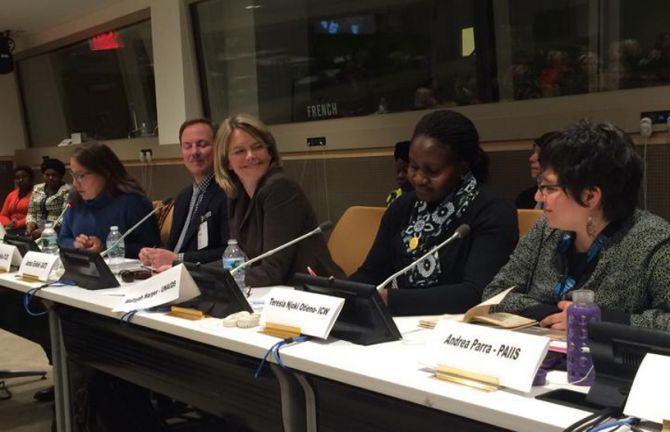

Update
Forced and coerced sterilization: a global violation of human rights
19 March 2015
19 March 2015 19 March 2015UNAIDS and partners called for the elimination of forced and coerced sterilization of women and transgender people at the Commission on the Status of Women (CSW) in New York, United Sates of America.
During a side event hosted on 19 March by UNAIDS, the International Community of Women Living with HIV, Global Action for Trans Equality, the Center on Law and Social Transformation and the Action Program for Equality and Social Inclusion, participants discussed strategies and recommendations to fast-track the end of the practice in the context of the post-2015 development agenda. The dialogue brought together civil society activists, CSW delegates, ministers of gender and United Nations representatives.
The practice of forced and coerced sterilization continues to occur in many parts of the world. The participants discussed how it is a form of institutional violence and a human rights violation, which has been shrouded in silence and protected by societal acceptance.
The practice, however, has been garnering international attention in recent years, with increasing commitment to its elimination affirmed in several statements and resolutions. For example, in November 2014 the Namibian Supreme Court ruled in favour of three women living with HIV who had been subjected to coercive sterilization in public hospitals without their informed consent.
It was also highlighted that the 2014 United Nations interagency statement on eliminating forced, coercive and otherwise involuntary sterilization, to which UNAIDS is a signatory, is also contributing to the global efforts to eliminate this practice by providing guiding principles for prevention and recommendations for legal policy and service delivery.
Quotes
“Eliminating forced and coerced sterilization, which is a fundamental human rights violation, speaks to the heart of UNAIDS’ values, principles and work. It is one of too many sexual and reproductive rights violations.”



